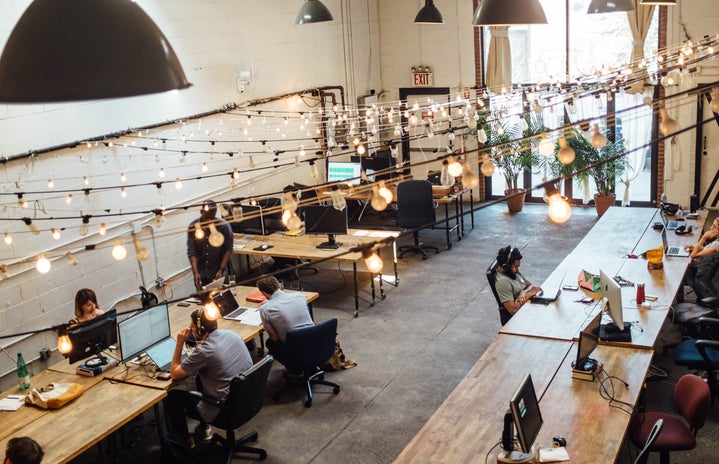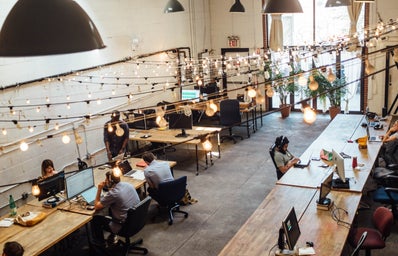It’s an early winter evening and as everything freezes over, I think how easily it could be mistaken for the middle of the night. Just then Alyssa breaks out of a dark, pulsing crowd of arriving and departing students on campus and strides forward to meet me under the golden sheen of the WaseCafe’s comforting little lights.
We exchange greetings and as usual, I’m struck by her amazing sense of fashion. Every day is a new aesthetic for Alyssa to command with ease and she’s always ready to experiment with textile and color. Today, she’s dressed in a comfy olive green sweater, black leggings, sleek combat boots and wearing shining hoop earrings, all of it set off with a dark coat and fluffy white scarf. In short, she looks ready to take on war, be it with homework or homophobes.
Yes, we’ve met to talk about the LGBT world and more specifically, Alyssa’s experiences as a bisexual student on campus.
We find a place to sit in the cafe and true to her nature, she decides to try out something new called マロー [Maro] tea. We have no idea what it is. Melon? Marshmallow? Bone marrow? She orders it anyway and we find to our relief that it’s actually Mallow flower tea.
We formally begin the interview.
Via Alyssa’s photo collection: She’s also a talented chef and excels at whipping up delicious meals and gorgeous set-ups like these in her free time.
I thank Alyssa for letting me interview her about such a personal topic as I internally marvel at the fact that she’s able to speak so candidly about her journey and all its ups and downs in a crowded cafe.
“I often feel invalidated,” she admits, toying with her cup of tea, “I don’t have too many LGBT friends in Japan. I had more at home.”
Alyssa is Indonesian and out of curiosity, I ask how many LGBT friends she had there.
“Three,” she replies simply and then realizes what she’s just said. “Not a lot.”
I’m curious about her realization regarding her bisexuality and how she came out.
“To be honest, I wasn’t completely closeted in high school,” she replies, going on to speak about artist Tyler the Creator, who came out via a song that resonated with her own feelings. Though Tyler the Creator wasn’t completely closeted before his coming-out song, the piece removed any ambiguity since before, people had thought the very masculine-presenting artist had just been joking about his sexuality. Alyssa then recounts reading shoujou manga [manga aimed at girls] as a child, then moving on to shoujou ai [a genre of romantic love between girls], which she read online in incognito mode.
“In middle school, I liked this girl and it was confusing. I was scared, wondering if I was lesbian,” Alyssa says, “She made me realize for the first time that I wasn’t straight.”
She didn’t express these feelings to her friend at the time, and I realize that the process of discovering and then acknowledging one’s own identity is a messy collision of real life incidents and media experiences through many years. It’s rarely ever a single revelation that falls into place and there are always doubts, suspicions, worry and anxiety as internal conflicts push against external standards of what is and isn’t acceptable.
Via Flickr
“The girl I liked became one of my LGBT friends in high school in the end,” Alyssa adds suddenly and I have to smile at the irony.
“Did you tell her that you’re bisexual?”
“I did,” she grins.
Alyssa shares a few anecdotes with me to illustrate how Indonesia deals with homosexuality and admits that there’s a lot of discrimination, fear and ignorance surrounding anything related to LGBT issues in general. Going on to explain that she experiences a degree of ease and privilege since she has a boyfriend, she admits feeling shielded by him when confronted with homophobia whether online or in real life.
“I can marry without coming out,” Alyssa says a little dully.
I want to learn more about her experience with sharing her identity with her family. Coming out is always a charged topic; many LGBT individuals embrace the concept, just as many detest it, and others are ambivalent or undecided.
“Coming out to my parents would be disastrous,” Alyssa says in no unsure terms, reiterating that neither of her parents would react well to the news, even if given time to process it. “In Indonesia, in 2015 or 2016, there was this milk brand that I used to buy. It was a coincidence, but they had a picture on the package of two men with a child. People thought it was homosexual propaganda and my mother, who’s very conservative, told me not to buy [the brand of milk] anymore.”
Via Rajasusu
“The conversation became ‘What if I’m gay? Would you still love me?’ “ Alyssa recounts, “My mom said ‘No’. I wanted to cry then. I asked why. Her reason, she told me, was because of Allah [God]. [She said] that if you’re gay, I don’t have the responsibility to love you anymore.”
We’re both quiet for a bit and I check again. “You mean, that if you’re gay, she wouldn’t be responsible to God for loving you anymore?”
“Lots of people think like that,” Alyssa explains, “But I don’t think Islam teaches homophobia. There’s just that one phrase in the Koran, like the one in the Bible, that’s very vague.”
We take the conversation back to Japan and life on campus, where she admits that it’s easier to be herself and come out to the friends she trusts. However, all is not perfect.
“I don’t want people to know I’m bi,” Alyssa confides, “But I also don’t want them to think I’m straight, ew.”
“That’s interesting,” I observe, “A lot of people think that Straight + Gay = Bisexual, but you seem visibly disgusted by someone mistaking your identity and assuming you’re straight.”
“Bisexuality isn’t straight one time and gay another time,” Alyssa counters, “It’s not one or the other. People act like Bi people don’t exist. I hear things like ‘you just went through a phase’ a lot.”
Though she identifies as bisexual to those who don’t know her or aren’t well-versed with LGBT terminology, she refers to herself as ‘gay’ when in the company of friends who are LGBT+ themselves or allies, knowing that they understand the nuances of the phrase.
We talk about allies and their place in their community.
“In Japan, a lot of closeted people are allies,” she notes, “But I don’t like events like Ally Week, [and not] LGBT Week. If you take LGBTQIA, the A does not stand for allies. It’s great you’re being a decent person, but it [the community] is about us. Not you.”
[Note: LGBTQIA is generally expanded to Lesbian, Gay, Bisexual, Trans, Queer/Questioning, Intersex, Asexual]
Navigating student life as a member of what is generally considered a sexual minority is challenging, and Alyssa talks about an experience in high school that still bothers her now.
“For PE class, we were changing,” she recalls, “And I needed help with my bra strap. This girl came to help me but she first said, ‘Don’t worry, I’m not a lesbian’. And I wondered then, ‘Would people get scared of me [if they knew I was bisexual]?’ “
Alyssa goes on to mention that though it hurts when her listener responds to her coming out as bisexual with disgust, what’s infinitely worse is being invalidated by someone who doesn’t take her seriously, or worse, fetishizes her bisexuality.
“I’m very lucky to be in SILS,” she says, snapping back to the present, “I’m not open, but I can make jokes, not be sacred. There’s not a lot of homophobia. Waseda is supportive, like [with] that initiative for gender-neutral bathrooms.”
At Arubaito [part time work], she skillfully fields and dodges pointed questions about her sexuality and romantic preferences from associates who assume she’s heterosexual.
“[When asked] who’s my type, I always bullshit something like ‘someone who’s not too masculine, who’s quiet and nice’…I don’t mention the gender,” Alyssa smiles.
We wrap up the interview with some lighter comments.
Via Alyssa’s photo collection: Another one of her stunningly vivid meals. Having worked part-time in an izakaya (Japanese bar-restaurant), she’s truly versatile.
“I’m pretty sure they’re bi,” Alyssa says, referring to the legendary lovers in Brokeback Mountain, “And they’re not cowboys, they’re shepherds!”
Via itunes
She also enjoys watching Brooklyn 99 and we discuss LGBT representation in movies and music. By now, it’s well into the night and the two of us have almost the whole cafe to ourselves. We decide to move our conference to a nearby Tendon Tenya and continue the discourse over dinner. Even as we get our things together, we’re trading opinions on pop singers.
“Lana Del Rey,” Alyssa says with a smile, “Nothing can get straighter.”
She’s a fan.
Cover image: Courtesy of Alyssa’s personal collection

